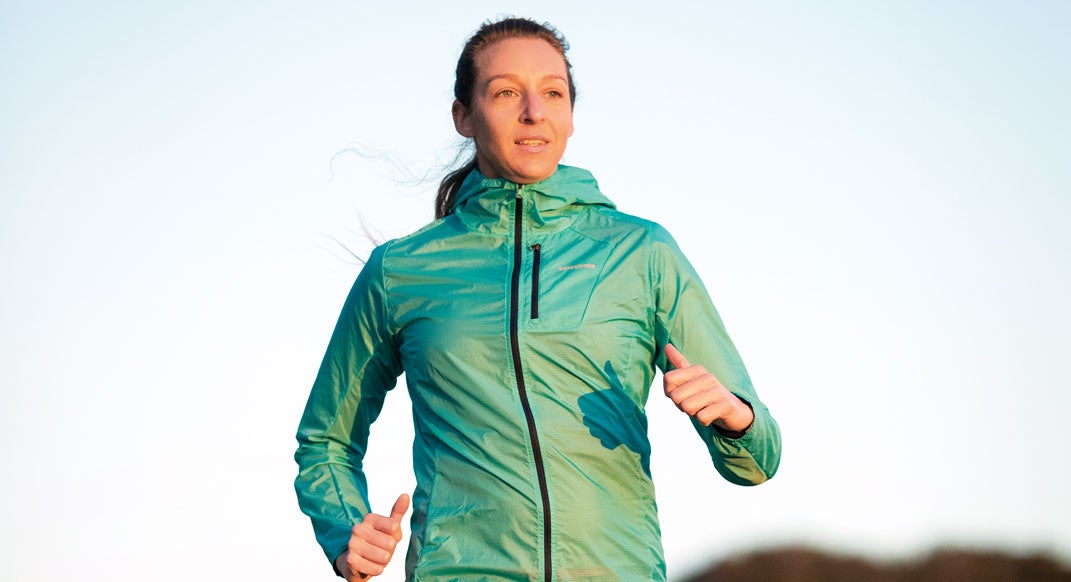Isolation

It wasn’t supposed to rain that day. But, I admit, I’ve lost track of what’s supposed to happen in general these days.
I also wasn’t supposed to run to the park but turned right on a whim. Since the stay-at-home order, my sense of adventure has been defined by slight changes to regular routines.
Really, I’d been good since March. Perhaps too good, which is a silly thing to say, considering Covid-19 is spiking across the country. But by “too good” I mostly mean I’ve been scared.
This isn’t my usual M.O. As an ultrarunner, I face fear: impossible mileage, intimidating elevation, improbable locations.
Before running, I had spent years feeling like my body wasn’t good enough: too big, too small, too female. What I wouldn’t give to erase sleazy comments, mansplaining, public groping and the low-grade but perpetual fear that something worse might happen when I’m alone. Running changed all that. When I run, my body isn’t an object; it’s a source of power.
Before running, I had spent years feeling like my body wasn’t good enough: too big, too small, too female. What I wouldn’t give to erase sleazy comments, mansplaining, public groping and the low-grade but perpetual fear that something worse might happen when I’m alone. Running changed all that. When I run, my body isn’t an object; it’s a source of power.
But even running is tenuous these days.
RELATED:Emotional Intelligence For Trail Runners
I worry that my body will come into contact with another body, and that one or both of us will spread a fatal virus to exponentially more bodies. Or that if I venture too far and am injured, my body will be another burden to an already exhausted medical community. After years of running on the edge of comfort, I’m hyper-aware of how my body can cause discomfort for others. Now, running is simply a way to stay sane.
Though sanity is fickle.
Each day come new reports of increasing infection rates, rising death tolls, and federal leadership that neglects the overall health of the nation. Simultaneously, I’ve become conscious of the fact that what I do to instill my own sense of calm has resulted in death for others: Ahmaud Arbery was out moving his body, sweating, hoping, like any of us, that running would give him a window of time to feel free.
I think of him now when I run, and I question what freedom in America truly means.
As a white woman in this pandemic, I’ve seen my body both as a carrier of death and a mirror of oppression—the exact opposite of strong.
As a white woman in this pandemic, I’ve seen my body both as a carrier of death and a mirror of oppression—the exact opposite of strong.
Some part of me must have known that by turning right, I would run to a Black Lives Matter protest that day. After avoiding crowds and people for months, I had to trick myself into thinking my presence in the park was accidental; had to rationalize the growing fear that my body is a burden.
I ran cautiously past clusters of masked faces to a section of the park that dipped into a grassy bowl beside a river. It was filled with bodies, unwavering in a sea of green, like reeds rising up from muddy wetland soil. All eyes were fixated on a man with a microphone.
I stood on the outskirts of the grassy depression, dripping sweat, feeling silly in running gear. I had forgotten what it felt like to be part of a group.
The man with the microphone asked us all to kneel in the soil, which he said represented the bodies of the ancestors. Then he asked us to raise a fist to the sky.
RELATED:A New Way to Think About Body Image
As I joined hundreds of people on the earth, drops of water hit our fists, landed on our bodies, dripped down to our knees, sank into the ground. Perhaps if I hadn’t spent so many months alone, I would have thought nothing of it. But in that moment, I felt connected to the world again. No one spoke or moved, as if we really were just plants growing up out of the ground, connected to each other by way of the earth.
The rain continued as I ran home, until—suddenly—dozens of pea-sized ice pellets smacked my skin and hit my face, as if screaming down from the sky: Do you get it now? You’re here! You matter!
I don’t know why I still need to be reminded. Or why—after more than 400 years of systems that devalue human life—our country still needs protests to prove Black lives matter.
Perhaps, in a society that values independence, people will always need to be reminded of unity. Perhaps, for individuals, finding meaning and purpose will always take work. Perhaps this is a reason to run trails: to be covered in particles of earth, under one sky, anointed by rain.
Claire Walla is a contributing editor for Trail Runner.